MAKES
-
 Abarth
Abarth
-
 Acura
Acura
-
 Alfa Romeo
Alfa Romeo
-
 Aston Martin
Aston Martin
-
 Audi
Audi
-
 Bentley
Bentley
-
 BMW
BMW
-
 Bugatti
Bugatti
-
 Buick
Buick
-
 BYD
BYD
-
 Cadillac
Cadillac
-
 Chery
Chery
-
 Chevrolet
Chevrolet
-
 Chrysler
Chrysler
-
 Citroen
Citroen
-
 Cupra
Cupra
-
 Dacia
Dacia
-
 Daewoo
Daewoo
-
 DAF
DAF
-
 Daihatsu
Daihatsu
-
 Datsun
Datsun
-
 De Lorean
De Lorean
-
 DFSK
DFSK
-
 Dodge
Dodge
-
 DS
DS
-
 Ferrari
Ferrari
-
 Fiat
Fiat
-
 Fisker
Fisker
-
 Ford
Ford
-
 GAZ
GAZ
-
 Geely
Geely
-
 Genesis
Genesis
-
 GMC
GMC
-
 Great Wall
Great Wall
-
 Hennessey
Hennessey
-
 Honda
Honda
-
 Hummer
Hummer
-
 Hyundai
Hyundai
-
 Infiniti
Infiniti
-
 Isuzu
Isuzu
-
 Iveco
Iveco
-
 Jaguar
Jaguar
-
 Jeep
Jeep
-
 Kia
Kia
-
 Koenigsegg
Koenigsegg
-
 Lada
Lada
-
 Lamborghini
Lamborghini
-
 Lancia
Lancia
-
 Land Rover
Land Rover
-
 Lexus
Lexus
-
 Lincoln
Lincoln
-
 Lotus
Lotus
-
 Lucid
Lucid
-
 Mahindra
Mahindra
-
 Maserati
Maserati
-
 Mazda
Mazda
-
 McLaren
McLaren
-
 Mercedes
Mercedes
-
 MG
MG
-
 Mini
Mini
-
 Mitsubishi
Mitsubishi
-
 Morgan
Morgan
-
 NIO
NIO
-
 Nissan
Nissan
-
 Opel
Opel
-
 Pagani
Pagani
-
 Peugeot
Peugeot
-
 Polestar
Polestar
-
 Pontiac
Pontiac
-
 Porsche
Porsche
-
 RAM
RAM
-
 Renault
Renault
-
 Rimac
Rimac
-
 Rivian
Rivian
-
 Rolls-Royce
Rolls-Royce
-
 Rover
Rover
-
 Saab
Saab
-
 Scion
Scion
-
 Seat
Seat
-
 Skoda
Skoda
-
 Smart
Smart
-
 Sony
Sony
-
 SsangYong
SsangYong
-
 Subaru
Subaru
-
 Suzuki
Suzuki
-
 Tata
Tata
-
 Tesla
Tesla
-
 Tofas
Tofas
-
 Toyota
Toyota
-
 Vauxhall
Vauxhall
-
 Volkswagen
Volkswagen
- › Amarok
- › Ameo
- › Arteon
- › Atlas
- › Beetle
- › Bora
- › Caddy
- › Eos
- › Fox
- › Gol
- › Golf
- › ID. Buzz
- › ID. CROZZ
- › ID. VIZZION
- › ID.3
- › ID.4
- › ID.5
- › ID.6
- › Jetta
- › Kaefer
- › Lamando
- › Lavida
- › Lupo
- › Multivan
- › Nivus
- › Passat
- › Passat CC
- › Phaeton
- › Phideon
- › Pointer
- › Polo
- › Polo Vivo
- › Routan
- › Saveiro
- › Scirocco
- › Sharan
- › T-Cross
- › T-Roc
- › Tacqua
- › Taigo
- › Taigun
- › Talagon
- › Taos
- › Tayron
- › Teramont
- › Tharu
- › Tiguan
- › Touareg
- › Touran
- › Up!
- › Viloran
- › Virtus
- › W12
- › XL1
-
 Volvo
Volvo
-
 XPENG
XPENG
-
 Zenvo
Zenvo

Volkswagen > Passat WLTP, MPG, Fuel consumption
Select the motor type for the year.
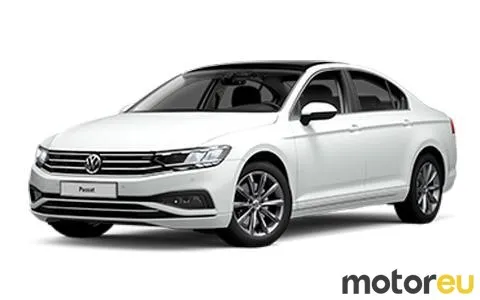
2019 - 2023
Passat
(B8, facelift 2019)
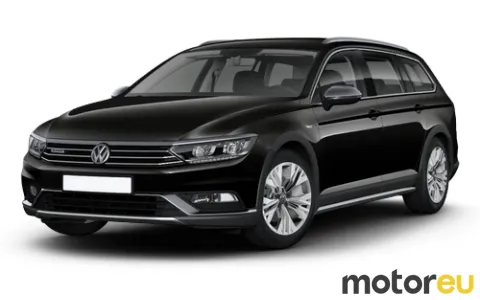
2019 - 2023
Passat Alltrack
(B8, facelift 2019)
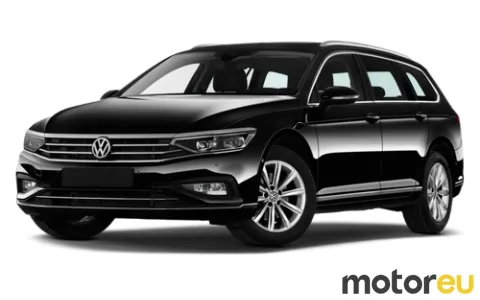
2019 - 2023
Passat Variant
(B8, facelift 2019)
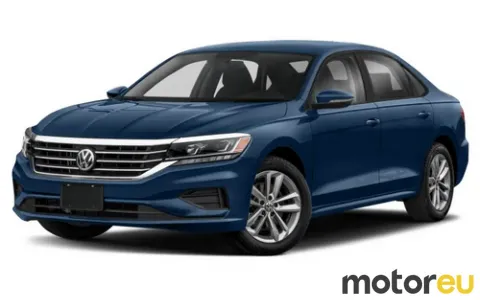
2019 - 2021
Passat
(North America, A34)
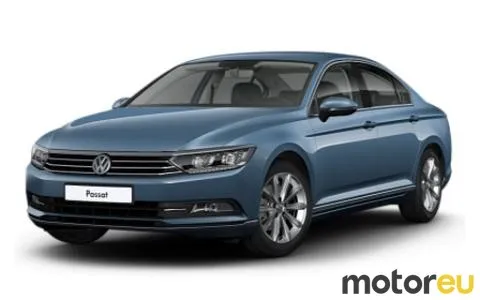
2014 - 2019
Passat
(B8)
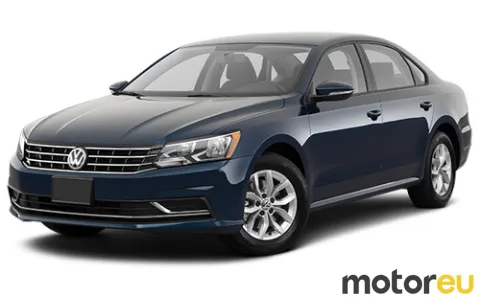
2015 - 2019
Passat
(North America, A33)
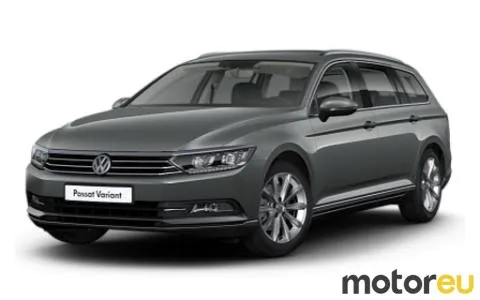
2014 - 2019
Passat Alltrack
(B8)
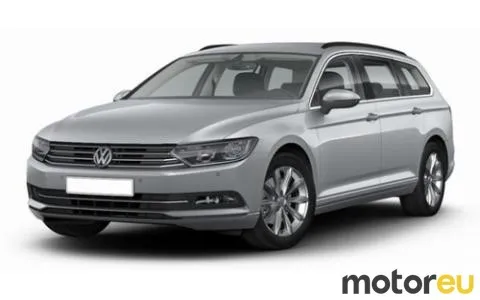
2014 - 2019
Passat Variant
(B8)
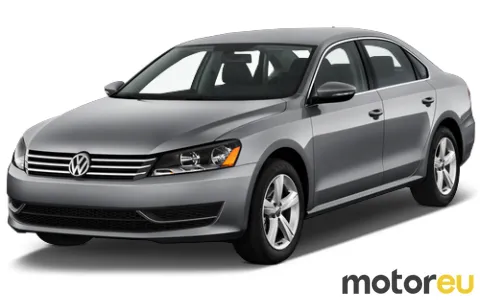
2011 - 2015
Passat
(North America, A32)
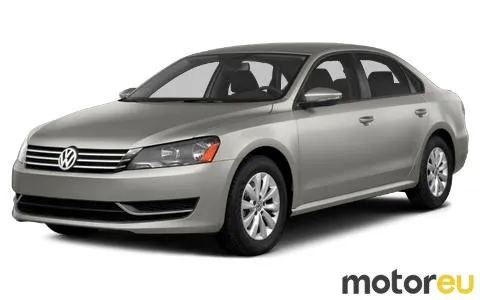
2010 - 2014
Passat
(B7)
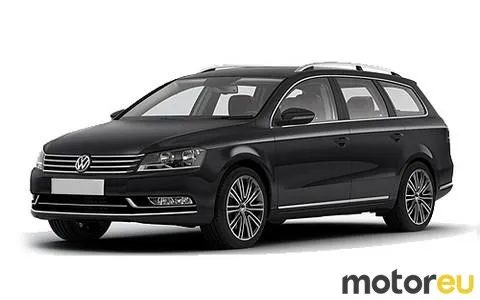
2010 - 2014
Passat Alltrack
(B7)
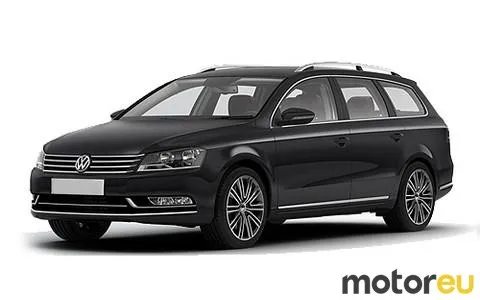
2010 - 2014
Passat Variant
(B7)
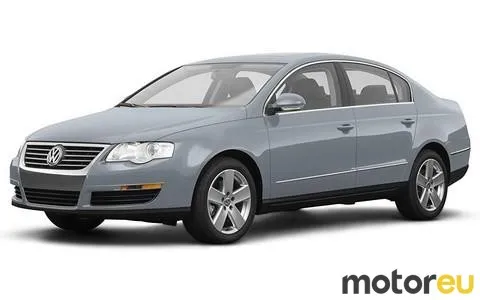
2007 - 2010
Passat
(B6)
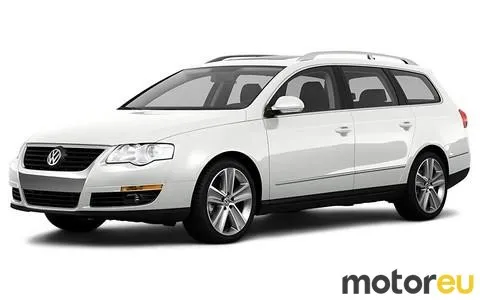
2007 - 2010
Passat Variant
(B6)

2000 - 2003
Passat
(B5.5)
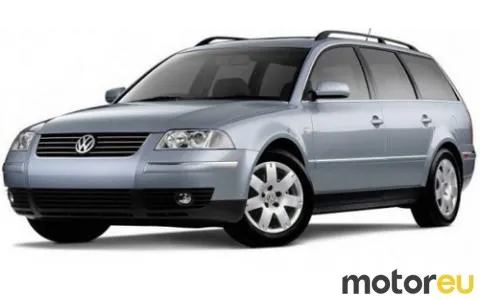
2002 - 2003
Passat Variant
(B5.5)

1996 - 2000
Passat
(B5)

1997 - 2000
Passat Variant
(B5)
In this review, we are going to take a closer look at the Volkswagen Passat. We will examine the details about the Volkswagen Passat under three main categories such as; The Features of the Volkswagen Passat, The Fuel Consumption of the Volkswagen Passat and Does It Suit You? These categories prepared for explaining the vehicle from any perspective. Before beginning the review, I would like to share some general information about the history of the Volkswagen Passat. It is a Large Family Car which is manufacturing by the German automobile manufacturer Volkswagen Group. Passat, which has an eight-generation history, has been sold in different countries with many different names over the years. These were Dasher, Santana, Carat and Quantum etc. The first generation B1 was produced in the early 70s. Today, it is still being produced as one of the most important models of the Volkswagen brand.
The Features of the Volkswagen Passat
In this part of the review, we are going to focus on the exterior design of the Volkswagen Passat. First, the new generation of Passat's body design has built on the MQB platform. As a result of that, the new generation Passat has got a wider and larger design when we compare it with its predecessor. The design of the Passat has changed considerably over time and it is becoming more and more sporty and sharp. Especially in the current generation B8, this feature is remarkable. The sharp lines extending from the front of the vehicle to the rear are the greatest examples of this. In addition to that, the LED Matrix headlights and LED taillights add a very classy and modern texture. Finally, the Passat inscription on the luggage has been repositioned. This move has had a positive impact on the prestige of the vehicle. Now, let's take a little journey in Volkswagen Passat's interior design. Volkswagen seems to have managed to combine functionality and elegance in interior design. It is very futuristic, but it has a traditional quality. In my opinion, the most striking feature of the interior design is the new generation Active Info Display. This high-resolution TFT LCD panel gives you more than a simple instrument panel. You can easily access all kinds of information from navigation to the smallest vehicle information without distractions. At the same time, you can customize the system for yourself. Moreover, the infotainment system supported by Apple Car Play and Android Auto provides everything the driver and passengers need during the journey. Isn't that enough? Except these features, technological systems such as Travel Assist and Park Assist are ready to make your driving extremely safe and comfortable.
The Fuel Consumption of the Volkswagen Passat
Now, we are going to focus on the fuel consumption of the Volkswagen Passat. We usually work on popular engine types and making analyses on them by checking details for an efficient fuel consumption analysis. While choosing the right car, you need specific and simple information. That’s why we are using this distinction method to make things easier for you. We use two main categories to make a useful distinction such as; The Most Economical One and The Most Powerful One. Volkswagen Passat has got five standard engine varieties such as; 1.4 TSI, 1.6 TDI, 1.8 TSI, 2.0 TDI and 2.0 TSI. We are going to analyse two of them as the most economical and the most powerful one. We can start with the most economical one which is; 2.0 TDI. It has got a four cylindered engine structure with a 1968 cm3 size. It is using a Diesel feed fuel system so we can say that it is a Diesel type engine. It can produce 150 HP and 3500 RPM Torque. According to the official factory data, 2.0 TDI has got a 4,7lt/100km (which refers to 60 MPG in the UK) MPG Performance in Urban usage. However, this MPG Rate decreasing to 3,6lt/100km (which refers to 78 MPG in the UK) in Extra Urban usage such as; Highways or Long Distance Trip. When we combine these two MPG data, we get a 4,0lt/100km (which refers to 71 MPG in the UK) average MPG rate. Now we will focus on the most powerful engine, which is; 2.0 TDI SCR BMT 4MOTION. It has got a four cylindered engine structure with a 1968 cm3 size. It is a diesel type engine which produces 240 Horsepower and 4000 RPM Torque. 2.0 TDI 4MOTION has got a 6,6lt/100km (which refers to 43 MPG in the UK) fuel consumption in Urban usage. On the other hand, this fuel consumption rate decreasing to 4,9lt/100km (which refers to 58 MPG in the UK) in Extra Urban usage. When we gather these two fuel consumption performance data, we get a 5,5lt/100km (which refers to 51 MPG in the UK) average fuel consumption rate.
Does It Suit You?
To make a final comment, the Volkswagen Passat was always a quality vehicle. However, the last generation has amazing features and seems to outshine the previous generations. It provides a very efficient space usage with its wide structure. This makes it an ideal vehicle for families. Furthermore, the technological features make Passat, a very safe and comfortable car. Finally, thanks to the engine options, it provides enough performance while being an economical vehicle.